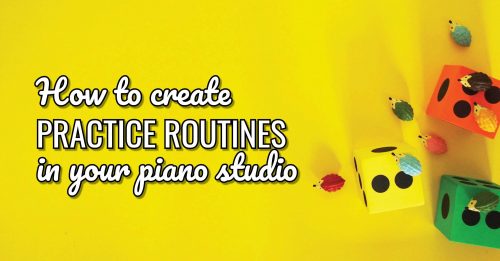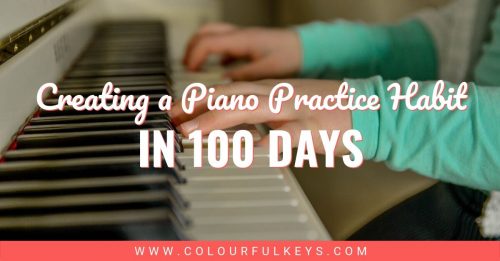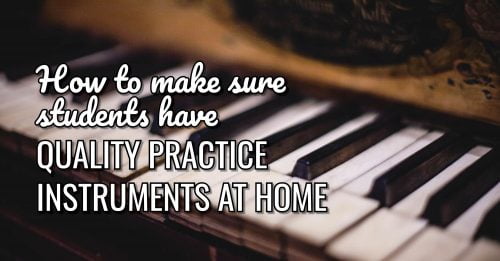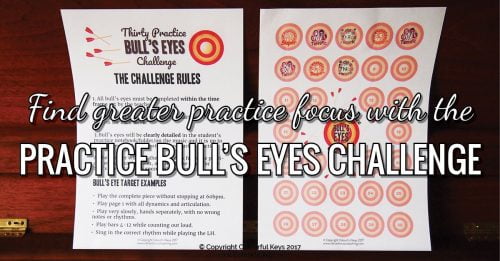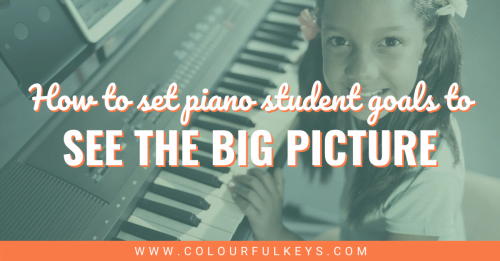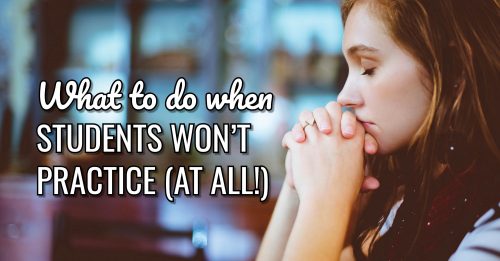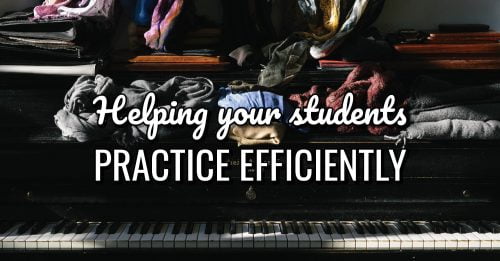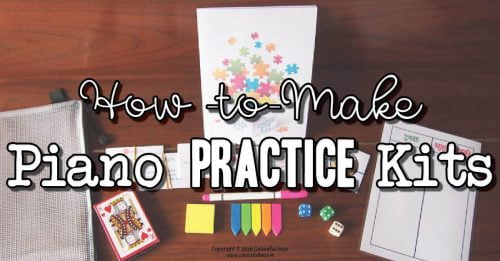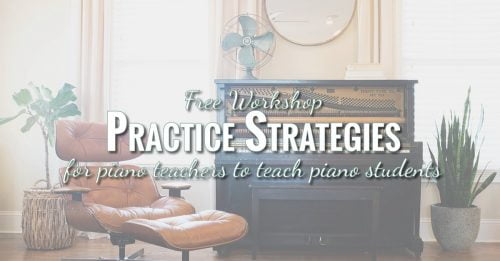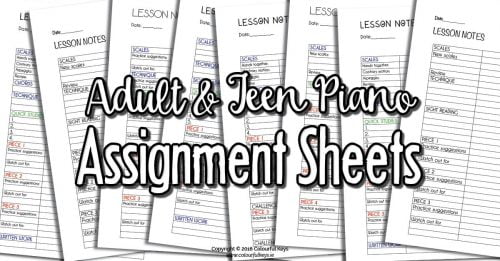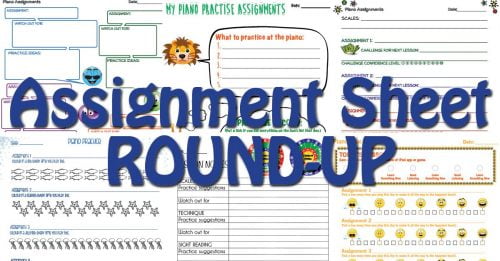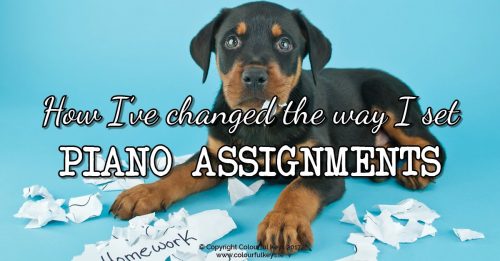Are you frustrated by your piano students lack of practice? Perhaps you're worried that the practice they are doing is inefficient and ineffective?
You've come to the right place. I literally wrote the book on piano practice and I love to help teachers help their students practise better. Keep reading to learn more about establishing piano practice routines, teaching piano practice strategies, keeping students motivated and the best ways to record assignments.
PRACTICE ROUTINES
Before your students can practise effectively and efficiently, they need to establish a routine and be practising regularly. Here are the top posts which will help you to get your students' practice routines up and running.
PRACTICE MOTIVATION & GOALS
After your students have a solid routine in place, you need to help them stick to it long-term and find ways for them to stay motivated. The articles below detail tried-and-tested practice motivation ideas and incentives.
PRACTICE STRATEGIES
We all know that while regular practice is great, it definitely doesn’t make perfect, and there’s a lot more to progress than just putting in the time. Find out how to get your students to practise effectively and efficiently with these awesome practice strategies.
PRACTICE ASSIGNMENT SHEETS
Should you use a notebook, a folder or an app to keep track of assignments? How can we make sure our students keep track of what they’re working on...and don’t come back repeating the same mistakes next week?
-
Access the Practice Pro course!
Become a member of Vibrant Music Teaching and get instant access to the fabulous
Practice Pro course as well as tons of other lesson plans, resources and games.
Facts About Piano Practice
Students Spend Less Than 1% of their week with you
You may have heard this number before...but what does it really mean? Let's put into context by contrasting it with their maths education.
School curriculums in most countries require students to have at least one maths lesson each day. Many will also assign maths homework most days. So, students are spending approximately 1–2 hours on maths every weekday. (More or less, depending on their age.)
Now, how much time are they spending on music?
Well, in most schools, very little. In fact, in many countries we consider ourselves lucky if they get one general music lesson a week.
We call ourselves piano teachers...but we're actually music teachers. We have to teach all of music, as well as the technical skills needed to play the piano well. Most of us have 30–60 minutes a week in order to do this.
That. Is. Not. Possible.
We can teach something if all we have is the lesson time but our student is not likely to reach even a solid intermediate level without regular piano practice as well.
When students don't practise (or don't practise well) it leads to frustration for both us and for them.
Most kids will not practice without help
Which leads us to our next important fact, one that is probably obvious to you as a piano teacher, but I promise you is NOT self-evident to most people: children need help to practise.
Any child under the age of 10, and even most teenagers, will absolutely need some assistance from their parents in order to practise regularly. It needs to be the parents' job to get piano practice happening at home and to make sure the practice is effective and efficient.
The section above on piano practice routines will help you with communicating this to piano parents in your studio.
Most of your students are practising WRONG
Be honest, how did your piano practice look when you were 9 years old?
Mine was, quite simply, atrotious. Here's roughly how it might have looked:
- Ignore scales
- Play the assigned piece
- Play a wrong note, get annoyed and bash away at the correct note several times to somehow tell my brain not to make that mistake again
- Start the piece from the beginning again and make the same mistake in the same place
- Walk away from piano, feeling useless
If you're not actively teaching your students how to practise – with specific strategies and lots of practising of practice during the lesson – then this is probably what they're doing, too. We need to break the cycle of teachers telling students to practise but not telling them how.
Start with the ideas on this page and teach your students specific piano practice strategies so that they start to learn what practice really means. Because it's not simply playing a piece over and over until it sticks. 🙂
-
Make piano practice more fun
Become a member of Vibrant Music Teaching and get instant access to lesson plans,
resources and games that will make practice more fun and engaging for your students.
